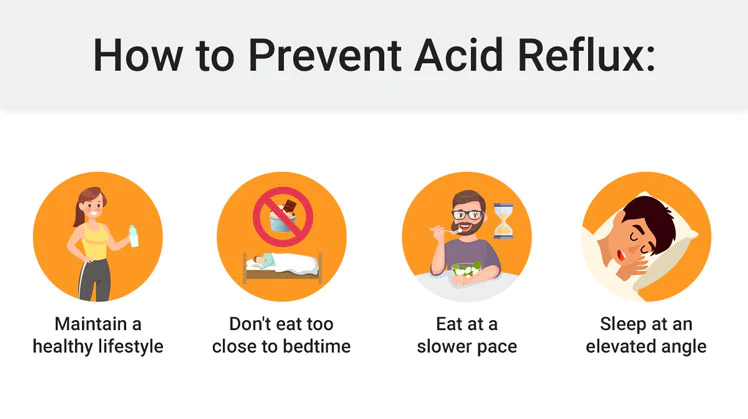Understanding the Physical Manifestations of Gambling Stress
We live in an era where the intersection of psychological stress and physical health has never been more apparent. The experience of consecutive gambling losses—whether at a poker table or during a session on a game like the le cowboy slot demo creates a profound cascade of physiological responses that many gamblers fail to recognize until the symptoms become unbearable. Among these manifestations, acid reflux stands as one of the most common yet frequently overlooked consequences of gambling-related stress.
The connection between gambling losses and gastrointestinal distress represents more than mere coincidence. When we experience the emotional turmoil of financial losses, our bodies activate the stress response system, triggering a complex series of hormonal and neurological changes that directly impact our digestive functioning. Understanding this relationship provides the foundation for developing effective coping strategies and preventive measures.
The Science Behind Stress-Induced Acid Reflux
:max_bytes(150000):strip_icc()/VWH_illustration_Acid-Reflux-Sore-Throat-Remedies_Illustrator_Nez-Riaz_Final-aa0381fd078e43359fc8c5a00c7b85a5.jpg)
The human body’s response to stress involves the activation of the sympathetic nervous system, commonly known as the “fight or flight” response. When we encounter a losing streak at the casino, poker table, or sports betting platform, our brain perceives this as a genuine threat to our wellbeing. This perception triggers the release of cortisol and adrenaline, two primary stress hormones that fundamentally alter our physiological state.
These hormonal changes create several conditions that promote acid reflux. First, stress hormones increase the production of stomach acid while simultaneously slowing down the digestive process. This combination creates an environment where acidic content remains in the stomach longer than normal, increasing the likelihood of reflux. Second, stress causes the lower esophageal sphincter (LES) to relax inappropriately, allowing stomach contents to flow backward into the esophagus.
Furthermore, the emotional distress associated with financial losses often leads to behavioral changes that exacerbate the problem. We may skip meals, consume alcohol excessively, eat irregularly, or choose comfort foods high in fat and sugar—all of which contribute to increased acid production and reflux symptoms.
Recognizing the Symptoms of Gambling-Related GERD
Gastroesophageal reflux disease (GERD) manifests through various symptoms that gambling enthusiasts often attribute to other causes. The most recognizable symptom is the burning sensation in the chest, commonly called heartburn, which typically worsens after meals or when lying down. However, the condition produces numerous other indicators that we must recognize.
Many individuals experience regurgitation, where stomach contents rise into the throat or mouth, creating a sour or bitter taste. This symptom frequently occurs during or after intense gambling sessions, particularly when combined with consumption of caffeinated beverages or alcohol. Additional symptoms include difficulty swallowing, chronic cough, laryngitis, disrupted sleep, and the sensation of a lump in the throat.
The timing of these symptoms often correlates directly with gambling activities. We may notice that heartburn intensifies during losing streaks or immediately following significant financial losses. Some gamblers report experiencing chest pain so severe during particularly stressful sessions that they initially mistake it for cardiac problems.
The Psychological Loop: How Reflux Worsens Gambling Behavior
The relationship between gambling stress and acid reflux creates a destructive feedback loop that many fail to recognize. When we experience physical discomfort from reflux during gambling sessions, this additional stress can impair our decision-making abilities, leading to more irrational betting choices and potentially deeper losses.
Chronic pain and discomfort from untreated reflux also contribute to sleep disturbances, which further compromise our cognitive functioning and emotional regulation. Poor sleep quality increases irritability, reduces impulse control, and impairs our ability to assess risk accurately—all factors that can drive problematic gambling behavior.
Additionally, some individuals attempt to self-medicate their reflux symptoms or gambling-related anxiety through alcohol consumption, which paradoxically worsens both conditions. This creates a cycle where gambling stress triggers reflux, reflux symptoms drive compensatory behaviors, and these behaviors intensify both the gambling problem and the gastrointestinal issues.
Immediate Intervention Strategies for Active Symptoms
When we experience acid reflux symptoms during or immediately after gambling activities, several immediate interventions can provide relief. Standing or walking helps gravity prevent stomach acid from flowing into the esophagus. We should avoid lying down for at least three hours after eating, as this position facilitates reflux.
Drinking water can help dilute stomach acid and wash it back down into the stomach, providing temporary relief. However, we must avoid carbonated beverages, which can increase stomach pressure and worsen symptoms. Chewing sugar-free gum stimulates saliva production, which naturally neutralizes acid and aids in clearing the esophagus.
Over-the-counter antacids provide rapid but temporary relief by neutralizing existing stomach acid. H2 blockers reduce acid production and offer longer-lasting relief, though they take longer to become effective. Proton pump inhibitors represent the strongest non-prescription option, dramatically reducing acid production over an extended period.
Long-Term Lifestyle Modifications for Prevention

Preventing gambling-related acid reflux requires comprehensive lifestyle changes that address both the gambling behavior and the physiological triggers. We must establish regular eating patterns, consuming smaller, more frequent meals rather than large portions that overfill the stomach. Timing matters significantly—we should finish eating at least three hours before gambling sessions or bedtime.
Dietary modifications play a crucial role in managing reflux symptoms. We need to identify and eliminate personal trigger foods, which commonly include fatty foods, chocolate, caffeine, alcohol, citrus fruits, tomatoes, garlic, onions, and peppermint. Maintaining a food and symptom diary helps identify specific triggers that may be unique to our individual physiology.
Weight management significantly impacts reflux severity, as excess abdominal weight increases pressure on the stomach, promoting acid reflux. Even modest weight loss can produce meaningful symptom reduction. Regular physical activity supports weight management while also reducing stress levels, creating multiple beneficial effects.
Elevating the head of the bed by six to eight inches helps prevent nighttime reflux, which often occurs after evening gambling sessions. We should use blocks or wedges under the bed frame rather than simply adding pillows, which can create an angle that actually worsens reflux by bending the body at the waist.
Stress Management Techniques for Gamblers
Since stress represents the primary link between gambling and acid reflux, developing effective stress management strategies becomes essential. Mindfulness meditation has demonstrated significant efficacy in reducing both stress levels and GERD symptoms. We can practice brief mindfulness exercises even during gambling sessions, taking moments to focus on breathing and present-moment awareness rather than fixating on losses.
Progressive muscle relaxation helps release the physical tension that accumulates during stressful gambling experiences. This technique involves systematically tensing and relaxing different muscle groups, promoting overall relaxation and reducing the physiological stress response that triggers acid production.
Cognitive behavioral techniques help us reframe our thinking about losses and develop healthier perspectives on gambling outcomes. Rather than catastrophizing losses or personalizing bad beats, we can learn to view them as statistical inevitabilities within the broader context of probability and variance.
Setting predetermined loss limits and strictly adhering to them eliminates the open-ended stress of wondering “when to stop.” When we establish firm boundaries before beginning gambling activities, we create psychological safety that reduces the physiological stress response.
Medical Treatment Options and When to Seek Help
While lifestyle modifications and stress management provide the foundation for managing gambling-related reflux, some cases require medical intervention. Persistent symptoms despite conservative measures warrant consultation with a healthcare provider, who may prescribe stronger medications or order diagnostic testing.
Prescription-strength proton pump inhibitors offer more powerful acid suppression than over-the-counter versions. In cases where medications prove insufficient, surgical interventions such as fundoplication can strengthen the lower esophageal sphincter and prevent reflux. However, these invasive options should be considered only after exhausting conservative approaches and addressing the underlying gambling-related stress.
We must recognize that chronic, untreated acid reflux can lead to serious complications including esophageal ulcers, strictures, Barrett’s esophagus, and even esophageal cancer. These potential consequences underscore the importance of taking reflux symptoms seriously rather than dismissing them as an inevitable part of the gambling experience.
Addressing the Root Cause: Gambling Behavior Modification
Ultimately, the most effective long-term solution for gambling-related acid reflux involves addressing the gambling behavior itself. If we find that gambling consistently produces stress levels that trigger physical symptoms, this represents a clear signal that our relationship with gambling has become problematic. For those looking to understand these dynamics in a lower-stakes environment, exploring a https://lecowboyslot.com/ demo can provide insight into gameplay without financial pressure.
Professional counseling, whether through individual therapy, support groups, or specialized gambling addiction treatment programs, provides evidence-based strategies for modifying gambling behavior. Cognitive behavioral therapy specifically targets the thought patterns and beliefs that drive excessive gambling, helping us develop healthier attitudes toward risk and loss.
Many individuals benefit from self-exclusion programs offered by casinos and online gambling platforms. These programs create structural barriers that reduce impulsive gambling and provide breathing room to develop alternative coping strategies and recreational activities.
Financial counseling helps us repair the economic damage caused by gambling losses while establishing systems that prevent future problems. When we address the financial stress through structured debt repayment and budget management, we simultaneously reduce the physiological stress that triggers acid reflux.
The Path Forward: Integrating Health and Responsibility
The connection between losing streaks and acid reflux illustrates how profoundly our recreational choices impact our physical health. We must approach gambling with the same health-consciousness we apply to other aspects of our lives, recognizing that the stress it generates produces real, measurable physiological consequences.
By implementing the strategies outlined above—immediate symptom management, lifestyle modifications, stress reduction techniques, appropriate medical care, and gambling behavior modification—we can break the destructive cycle linking gambling stress to digestive problems. This integrated approach addresses both the symptoms and their underlying cause, promoting better physical health alongside more responsible gambling practices.
The burn of a bad beat need not translate into the burn of acid reflux. Through awareness, intervention, and commitment to healthier patterns, we can enjoy gambling as entertainment without sacrificing our gastrointestinal health and overall wellbeing.

